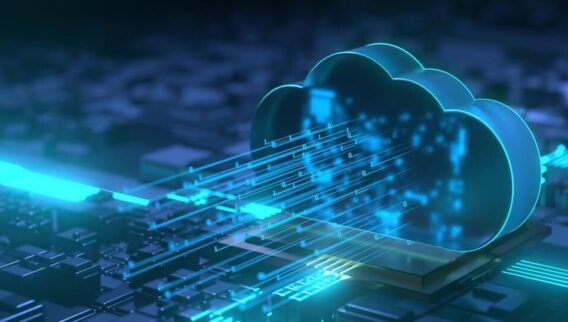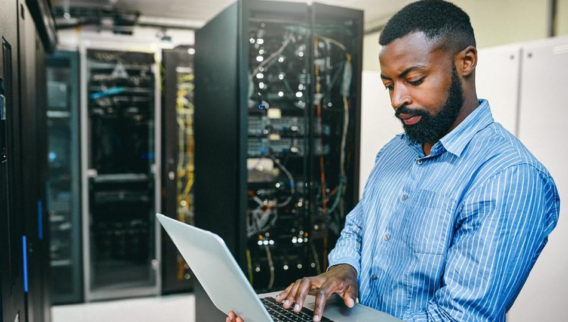In recent years, the meteoric rise of artificial intelligence (AI) has sent shockwaves through society on both economic and cultural levels. Seemingly poised to become as ubiquitous as email, this rapidly evolving technology is transforming many aspects of daily life—including how we teach and learn.
In October 2023, Forbes Advisor surveyed 500 practicing educators from around the U.S. about their experiences with AI in the classroom. With respondents representing teachers at all career stages, the results reveal a snapshot of how artificial intelligence is impacting education.
What Is AI?
Before we dive into AI’s function in the education space, let’s define this technology in general terms. Artificial intelligence allows machines to execute tasks that have traditionally required human cognition. AI-powered programs and devices can make decisions, solve problems, understand and mimic natural language and learn from unstructured data.
OpenAI’s release of ChatGPT—a natural language processing chatbot—in the fall of 2022 brought AI to many people’s attention for the first time. However, AI tools have been part of the tech landscape for years. If you’ve ever played chess against a bot, consulted a virtual assistant like Siri or Alexa or even scrolled through your social media feed, you’ve already interacted with artificial intelligence.
What Are the Functions of AI in Education?
We’re still learning how AI technologies will integrate into the education sector as they develop, and we don’t yet have a full picture of how AI will affect critical issues of ethics, equity and data safety. However, we’ve already pinpointed several key uses for artificial intelligence in education, including the following.
AI-Powered Educational Games
Teachers have long recognized the value of play-based learning, and schools have used educational computer games—such as The Oregon Trail, first released in 1974—since the early days of computer gaming. Today’s AI-powered games can deliver targeted learning thanks to user-responsive programming.
Adaptive Learning Platforms
Educational technology leaders such as Carnegie Learning and Knewton offer adaptive platforms that customize learning activities and content in real time. Continuous assessment allows for immediate feedback and helps the system adjust its approach. Adaptive learning methodologies vary from simple rules-based systems to multifaceted machine learning algorithms.
Automated Grading and Feedback Systems
By automating grading, planning and administrative work, artificial intelligence systems can free up educators’ time and energy for increased student contact. This is a common argument in support of using AI in the classroom.
Chatbots for Student Support
At many higher education institutions, university chatbots support learners by responding to admissions queries, connecting students to course information and student services and delivering reminders. Other chatbots can help students brainstorm ideas, improve their writing skills and optimize their study time.
Intelligent Tutoring Systems
Often dedicated to a single subject such as math or language, intelligent tutoring systems simulate the one-on-one experience of working with a human tutor. Examples include the Duolingo app and Khan Academy’s Khanmigo tutoring system.
AI’s Influence on Education
More than half of the teachers who responded to Forbes Advisor’s survey said they believe AI has had a positive effect on the teaching and learning process. Less than 1 in 5 cited a negative effect.
60% of Educators Use AI in Their Classrooms
AI tools for teacher and student support are growing in popularity. Our survey found that younger teachers are more likely to adopt these tools, with respondents under 26 reporting the highest usage rates.
The Most Common AI Tools Used in the Classroom
Teachers use AI-powered educational games more often than any other AI tools, but adaptive learning platforms and automated grading and feedback systems are also popular.
Concerns Surrounding AI in Education
As the adoption of AI in the classroom proliferates, students, teachers and schools must grapple with how to use these technologies responsibly. Chatbots such as ChatGPT have sparked controversy among educators about their potential to facilitate cheating and generate misinformation. Moreover, professionals and observers have raised critical questions about data privacy, algorithmic bias and access disparities as they relate to AI.
Teachers Worry About Cheating, Lack of Human Interaction in Classrooms
Academic dishonesty tops the list of educators' concerns about AI in education. Teachers also worry that increased use of AI may mean learners receive less human contact.
The Most Common AI Cheating Methods
Most of the teachers we surveyed have observed students using AI—particularly generative AI, which can compose essays and supply answers on demand—to cheat.
The Future of AI in Education
In response to the growing presence of AI in education, organizations like the U.S. Department of Education (ED) and UNESCO have called for a transparent, human-centered approach to the use of these technologies.
ED recommends prioritizing educators' perspectives in developing AI solutions that enhance and support teachers' traditional roles rather than attempt to replace them. Along with state entities such as the California Department of Education, UNESCO advocates for equity-focused AI in education policies aimed at narrowing technological gaps within communities and worldwide.
Leading AI companies have taken note of the education space’s unique needs and concerns regarding the responsible use of artificial intelligence and have begun to adapt their products to address these factors.
For example, in May 2024, OpenAI introduced ChatGPT Edu, a version of ChatGPT designed for higher education institutions. This iteration of the popular platform features enhanced security and privacy, does not use conversations and data to train Open AI models, and offers education-relevant capabilities such as document summarization and the ability for students and instructors to build and share customized GPT models.
Although artificial intelligence presents novel concerns for the education sector, most teachers we surveyed reported a positive outlook on the future.
Teachers Want More Education To Understand AI and Use It Ethically
Ninety-eight percent of our survey respondents identified a need for at least some education on ethical AI usage. More than 60% recommended comprehensive education.
Educators Don’t Expect AI To Take Center Stage in Education
Nearly all of the teachers we surveyed predict that artificial intelligence will continue to impact classrooms of the future. However, most don't envision it playing a central role.
The Bottom Line
Today's education professionals are watching a technological revolution unfold in real time as AI-enabled learning platforms, educational games, chatbots, virtual tutors and organizational tools become more widespread every day. More than half of the teachers we surveyed had encountered at least some of these technologies.
As observers on the front lines, teachers are well-positioned to identify major concerns regarding the education sector’s adoption of AI-powered tools. Our survey found that respondents were the most worried about issues like cheating, loss of human interaction, job security, equity and safety.
Despite these concerns, U.S. educators seem optimistic about the potential of AI in the classroom. Acknowledging that artificial intelligence will likely play an expanding role in education, most teachers have already begun to integrate AI tools into their daily work routines.
Frequently Asked Questions (FAQs) About Artificial Intelligence in Education
How is artificial intelligence used in education?
AI-powered educational technology encompasses tools for teachers, students and administrators. Educational games, adaptive learning platforms, chatbots and intelligent tutoring systems provide individualized support for learners. Automated grading, feedback and planning programs cater to education professionals.
What are the pros and cons of AI in education?
Artificial intelligence can offer personally tailored instruction to students and help reduce administrative work for teachers. AI-powered accommodations can increase accessibility for students with disabilities and English language learners. However, students can also use AI technology to cheat, and some AI tools may provide misinformation. AI could also lead to reduced human contact in the classroom, access disparities and threats to data privacy.
How is AI shaping the future of education?
Forbes Advisor’s survey found that most U.S. teachers expect AI to continue expanding its influence in the education sphere. Nearly all respondents believe schools should teach students how to use AI ethically. As AI becomes more prevalent in education technology, teachers, institutions and government agencies should develop new strategies to ensure academic integrity, promote equitable access to AI tools and address other concerns.








